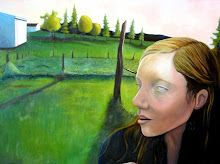Oley Valley Heritage by Phil Pendleton was recomended to me as the most comprehensive social history of the Oley Valley in print today. I was not disapointed. Based on a plethora of original research, the book details every valuable aspect of life in the Oley valley during the eighteenth century.
The work beings basically enough with a description of the land. This is crucial to understanding the Oley Valley during this time period becuase the limestone soil in the northern section supported agriculture, while the red shale in the South left settlers with little choice but to work in industries like milling, iron, weaving, or smithing. Pendleton then moves on to structures, exploring housing styles, outbuildings, and the way they were used by various peoples. Next is religion, in a chapter entitled "Soul." Pendleton's treatment of the tension between denominations and the Moravians in the area is sound, and his discription of the New Born Sect is informative. The last chapter, on community, details how the diverse Oley Valley residents got along with each other.
Overall, Pendleton uses a great deal of primary documents for this study. Friends meeting minutes, legal documents, notices in newspapers, and court proceedings are all uniltized. The result is that the reader feel an intimacy with the members of the community, and gets a glimpse into their day-to-day lives.
Another result of so much field research is the overwhelming amount of pictures that Pendleton has on nearly every page of his book. Pendleton spent time in the Oley Valley for this study, and the imagery of this beautiful area is conveyed in the book. The unique architecture of the settlers of the Valley is not lost to the reader because photos of the buildings that happen to be still standing abound.
Overall, Pendleton has produced a thorough piece on a small area of Pennsylvania. The narrow geographical range does not limit the scope of the work however, as Pendleton links issues like econics, immigration, religion to the larger colonial scene. This book is a worthwhile read for anyone seeking to study colonial Pennsylvania.
Subscribe to:
Post Comments (Atom)


No comments:
Post a Comment